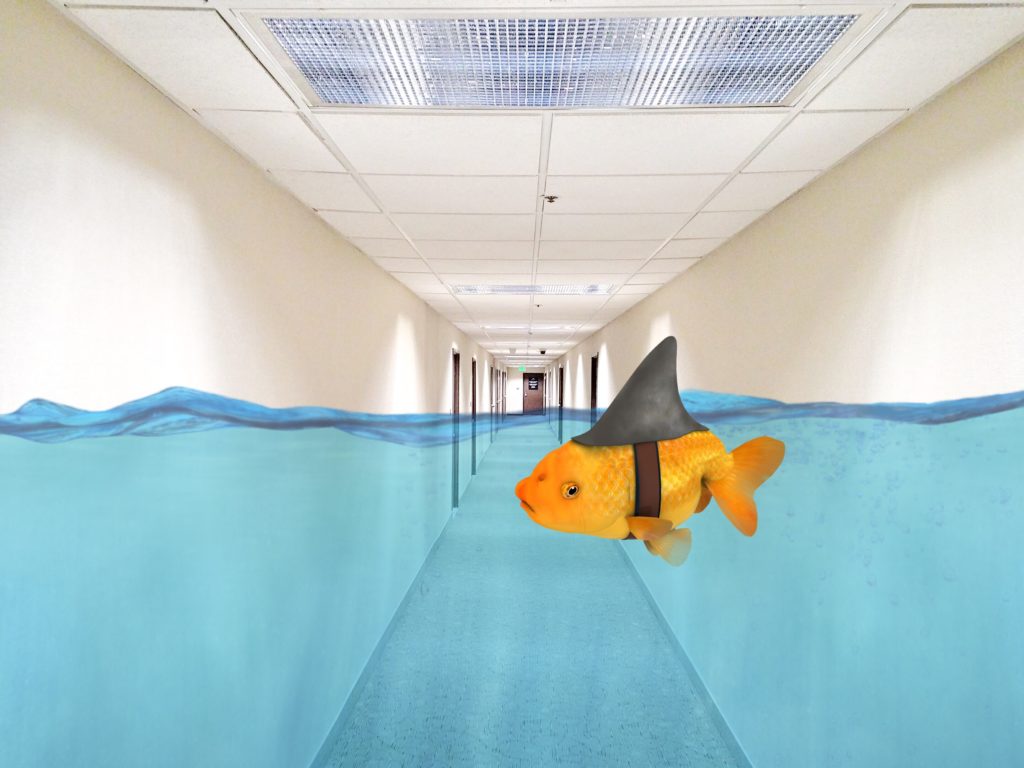 You know what you should be doing.
You know what you should be doing.
You know, somewhere deep in the recesses of your logical, operational brain (which is currently out of the office; it will get back to you, but not right now) you should be listening.
Just listening. And not even ACTIVE LISTENING. Basic, simple, sit-there-and-listen listening.
But oh no, at this moment, you cannot.
Something just snapped.
Maybe it was an email, a ringing phone, a shrieking siren, the person who just broke into your Zoom call with spam, or the dog knocking over your favorite vase from that friend who gave it to you the last time you traveled…when was that…when will you ever travel again…and now you just CANNOT.
You cannot listen.
Everything right now is black fog, lightning haze, splashing hot red blur where the person in front of you used to be standing, or sitting on that screen.
Right before that thing that pushed you right over the edge and now there’s no coming back for a while…
What just happened, and now what?
————————————-
You’ve just inadvertently discovered exactly how many straws it takes to break your camel’s emotional back. It was THAT ONE.
The area of acceptance in your behavior window is (just for now!) the size of a grain of rice, and that grain of rice is on thin ice.
In short: You’re emotionally flooded.
Emotional flooding is a state in which a series of stimuli, demands, problems, stresses, the environment…you know, life? Add up, add up, add up, and add up. At a certain point, they overwhelm the ability of our rational brain (which is the weaker part, overall) to override our emotional centers, and we respond very much like an overtired toddler at a grocery store who was just told she can’t have Captain Crunch:
We melt down, spectacularly.
Yes, even as grownups. (It’s 2020. Raise your hand if you haven’t shed a tear in the cereal aisle.)
We rarely know what our own breaking point will be, but the cup of emotion overflows. Usually there’s a trigger moment and at that point, momentum takes over.
 What To Do When You’re Emotionally Flooded To Save Relationships
What To Do When You’re Emotionally Flooded To Save Relationships
Emotional flooding is a physiological state, not a psychological state.
You may have heard the phrase “fight-or-flight,” and that is the most accurate full description of what happens to the human body when it becomes overwhelmed and emotionally flooded. The parasympathetic nervous system, whose job it is to keep us alive and uneaten by predators, releases a surge of adrenaline, and we’re supposed to use all that instant energy to RUN AWAY FAST NOW or HIT SOMETHING HARD.
That’s simply what our bodies want to do, and in a state of emotional flooding, our rational selves are not driving anymore–our bodies are.
Which is why it’s critical to recognize the symptoms of emotional flooding and be able to step away when you’re experiencing signs that you aren’t capable of listening quite yet, quite now.
Luckily the same prescription that works for toddler meltdowns also helps grown-ups reestablish their equilibrium and mop up after a flood.
1. Step Away for At Least 20 Minutes. Stepping away shouldn’t be hard; your body is screaming “run.” Find a way to physically remove yourself from the trigger/source(s) of stress or conflict for at least 20 minutes to allow the real, physical artifacts of a flooding event to dissipate. (Adrenaline and other compounds need to be cleared from your body’s tissues by your metabolic processes. They do go away, and quickly–but not instantaneously. Willpower doesn’t help. Don’t let demands to hurry up and get over this–your own or anybody else’s–interfere with this process, or you’ll be more prone to end up re-flooded.)
2. Pour Energy Into Something Physical. At the same time you step away, step toward something you can do with your body. Walk hard and fast, beat rugs, pound nails, lift weights, do push-ups, go for a run if that’s your thing (wear a mask). And completely focus on the task you’ve decided to empty your adrenaline into–whether that’s folding laundry, filing paperwork, doing dishes, or walking around the block. Focus on the sensations you can connect to right now, in your body. Try not to allow your mind to return to the conversation that elevated your emotions in the first place. Focus on what you are seeing, hearing, smelling, and tasting in the present moment during your own time-out.
3. Assess Relationship Damage Afterward and Apologize if Necessary. Let’s get super honest; after a meltdown, there’s going to be cleanup on aisle 5, and for better or worse, most of the people you need to make amends with are going to be willing to hear you. Even listen to you. If you need specific pointers, we have help for that too. But at this moment, immediately after an emotional flooding incident, you shouldn’t worry about your reputation as much as you should be worried about your own self-care–you start to repair your communication with others because relationships and good communication nurture you and help to make you feel safe in relationships with others–work, home, and otherwise.

